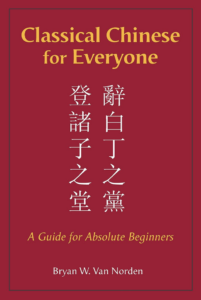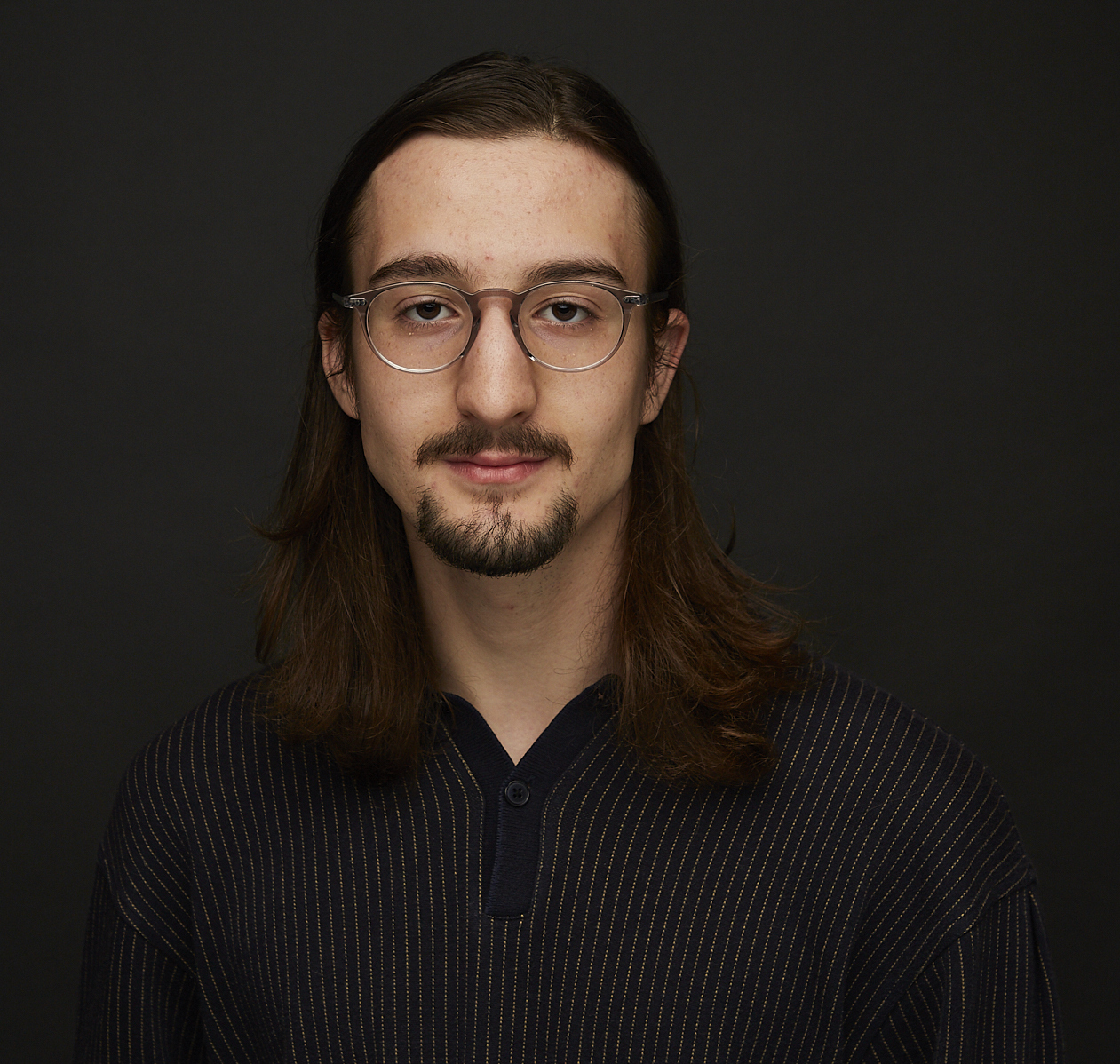
In the fall of my junior year I took my first philosophy class, Living a Good Life, alongside the half credit Chinese lab taught by Professor Angle. I believe this stemmed from my interest in religion in Taiwan and general budding interest in philosophy, as well as Prof. Angle recommendation that I specifically take the lab to learn about Chinese philosophy. This lab with Prof. Angle was engaging because it was a small group: four of us met once a week at night in Fisk Hall. We learned how to read classical Chinese at an introductory level from the book Classical Chinese for Everyone by Bryan W. Van Norden. The book has passages from Confucian and Daoist philosophy as well as ancient poets and other excerpts. What was most interesting was the act of translation and the discussions we had, particularly about Confucianism. My prior grasp of Chinese certainly helped me recognize characters but the grammar felt entirely new. Like in the Chinese poetry class, I enjoyed translation because word choice and order was important for imparting meaning. The practice and act of translation was a way to closer investigate how language affects a broader understanding. I got a particular sense of the key tenets and teachings of Confucianism and its deep connection with governance and society in China. Our discussion of the following passage of the Analects helped reveal this basis:
齊景公問政於孔子。孔子對曰:「君君,臣臣,父父,子子。」公曰:「善哉!信如君不君,臣不臣,父不父,子不子,雖有粟,吾得而食諸?」
This passage describes how we each have a role and a responsibility to play alongside one another – imparting the idea that our relations constitute the form of government. The general translation could be “Government is when rulers act like rulers, ministers like ministers, fathers like fathers, and children like children.” Yet, if one doesn’t act in accordance with their role, there is risk of disarray and imbalance in social cohesion. This passage and others helped ground a historical understanding of China’s political system in the sense of social, familial, and hierarchical responsibility.
After class ended I often stuck around and spoke with Prof. Angle about our discussions, and how they connected with my own life as well as the political moment. We discussed the differences between Confucianism and Daoism, and how more students preferred Daoism. Prof. Angle remarked that this was likely from their current situation and point in life, but that over time one’s roles become clearer. I think this class and these conversations opened my eyes to see how individual action and the state are intertwinned. I understood how, throughout its many iterations, governance in China often considered social cohesion. I then wondered how a better understanding of one’s roles and responsibilities could shape our own country and heal political divides. There is no definite conclusion we reached, but from learning these new (yet old) perspectives from the Analects it opened a new cultural perspective and a way to understand our contemporary moment.
Citation:
Van Norden, Bryan W. Classical Chinese for Everyone: A guide for absolute beginners. Indianapolis: Hackett Publishing Company, Inc, 2019.

Leave a Reply